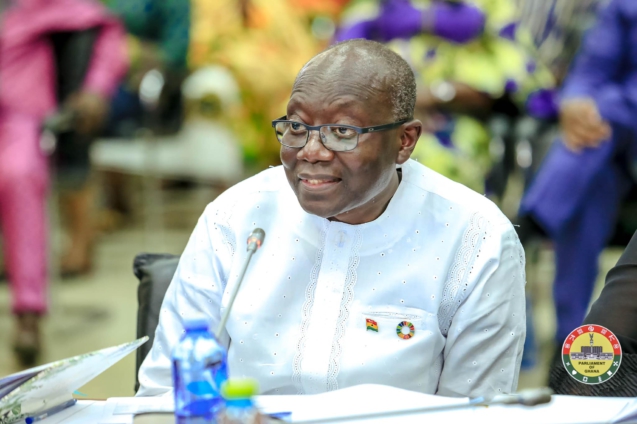Government’s efforts to return the economy to normalcy remain centred on increasing domestic production capacity, Finance Minister Ken Ofori-Atta has said.
The minister’s remark came on the back of his assurances of the government pursuing a robust growth strategy within the limited fiscal space during his presentation of the Mid-Year Fiscal Policy Review of the 2023 Budget Statement and Economic Policy.
“2022 was the most difficult year for me as Ghana’s Finance Minister. On July 1 2022, we took what was then a very difficult but necessary decision to request support from the IMF to implement our Post-COVID-19 Programme of Economic Growth (PC-PEG),” he stated.
A year on, he said: “Our steps are more grounded, the vision is clearer, the path to recovery is better set, and confidence in our economy is back, growing gradually. We have turned the corner and, more importantly, we are determined to continue down that path. Soon, we expect the measures taken resulting in economic activity greater than anything experienced in the history of the Fourth Republic. Our plans and programmes should soon lead to a sustained increase in domestic production, including manufacturing and farming, replacing many of the products that we are used to importing”.
The government, the minister added, will pursue such robust strategies within the current limited fiscal space by attracting domestic and foreign private sector investments as well as expanding production.
This, he noted, will be encouraged and stimulated by the government policies and agencies that seek to facilitate the ease of doing business in order to crowd in private domestic and foreign investments.
The 2023 Mid-Year Fiscal Policy Review, presented in Parliament, provided an update on economic performance for the first–half year of 2023 and outlook for the rest of the year, an update on the implementation of the IMF-supported PC-PEG, and an update on the debt restructuring programme.
It also presented a revised 2023 fiscal framework which aligns with the IMF supported PC-PEG; and outlined government’s growth strategy to drive the recovery process.
Banking sector recovery post-DDEP
The banking sector has been faced with challenges, mainly liquidity, following the government’s debt restructuring programme which was announced last year to tackle the economic crisis and unsustainable debt levels.
In February this year, a statement by the Finance Ministry read: “The DDEP is being done to help protect the economy and enhance Ghana’s capacity to service its public debts effectively. The alternative of not executing the DDEP would have brought grave disorder in the servicing of the national debt and exacerbated the current economic crisis”.
Meanwhile, the finance minister, in his presentation on of the 2023 Mid-Year Budget Review, emphasised the government’s commitment to restoring stability and confidence in the financial sector following the debt exchange programme, citing the establishment of the US$750million Ghana Financial Stability Fund.
“The financial sector – comprising commercial banks, specialised deposit taking institutions, insurance sector, and fund managers – participated significantly in the DDEP. The effects of the debt operations on the financial sector is elevated liquidity and solvency risks from impairment losses.
“Regulators, including the Bank of Ghana, provided temporary regulatory forbearance to mitigate the liquidity impact of the DDEP. The operationalisation of the US$750million Ghana Financial Stability Fund and the planned recapitalisation of banks would ensure stability as well as strengthen financial intermediation to support the private sector,” Mr. Ofori-Atta said.
The eligibility criteria for this intervention, he added, will be published soon.
As regards the impact of the debt exchange programme on individuals, Mr. Ofori-Atta assured that the government is working toward a faster economic recovery to ameliorate it’s impact on the welfare of the individuals.



